Posts Tagged ‘Training’
 RM Ham University – Test and Measurement
RM Ham University – Test and Measurement
The Rocky Mountain Ham Radio group offers an educational series they call RMHAM University. I am honored to be able to present on the topic of Practical Ham Radio Measurements on Saturday morning Dec 15th.
As many of you know, this topic is an intersection of my hobby of amateur radio and 40 years working in the electronic test and measurement industry. I’ve written two books on the electronic measurement and enjoy talking about it.
Here’s the agenda for the class.
| Topic | Comments | Time |
| 1. Introduction | Measurement Concepts, trends in test and measurement | 8:00 to 8:30 |
| 2. Digital Multimeters | Voltage, current and resistance measurements | 8:30 to 9:20 |
| Break | ||
| 3. SWR Measurement | SWR, reflection coefficient, SWR measurements, antenna analyzers, vector network analyzers | 9:30 to 10:20 |
| Break | ||
| 4. Oscilloscope measurements | Time domain, bandwidth, scope probes | 10:30 to 11:00 |
| 5. RF Measurements | Frequency domain, spectrum analyzers, SDR receiver, transceiver tests, power measurement | 11:00 to 11:30 |
| Discussion and wrap up | 11:30 to noon |
Location and Registration
4700 S. Yosemite St.
Greenwood Village, CO 80111
https://www.rmham.org/wordpress/rmham-university-2018/
The post RM Ham University – Test and Measurement appeared first on The KØNR Radio Site.
 Are Recent Technicians Getting on the Air?
Are Recent Technicians Getting on the Air?
Our radio club (Tri-Lakes Monument Radio Association) offers a 2-day Technician license class which has resulted in over 300 new Technician licenses in past years. We also offer a number of activities to help new licensees get started in ham radio. Still, we wonder how many of our newly-minted Techs have actually gotten on the air and are actively using amateur radio.
To assess that, I surveyed 258 people that went through our Technician license class from 2010 to 2017. We’ve actually had more students than that get their license but I don’t have valid email addresses for all of them. To improve the response rate, I kept the survey short at 5 questions.
The response rate was 42% which is quite good for this type of survey. I suspect there is a response bias in that active ham radio folks are probably more likely to reply to this survey. People that have lost interest are less likely to reply. That’s just my opinion; I don’t have data to support that.
Almost half of our Technician class students upgraded to General but only a few went on to Extra. Overall, I see this as a good result but I expected to see a few more Extra class licensees.
Most of the respondents have been on air recently: 60% of them have made a radio contact in the past 6 months. On the other hand, that means about 40% of not made a contact in half a year. It is disappointing to see that 13% have never made a ham radio contact.
There is quite a range on how active the respondents are with 45% making 10 or fewer contacts in 6 months.
About one half of the survey respondents are members of our radio club. Some of them are also members of other radio clubs in the area. Some of our students travel a long distance, up to 100 miles, to attend this class so it makes sense that they find a radio club near their home.
Most of the respondents reported being active on 2m/70cm FM. About 18% of them are on HF Phone. The total for all forms of HF operating (CW, digital and phone) is not shown on the chart but it is roughly 20%. While roughly half of the respondents have their General or Extra class license, only 20% are actually using the resulting HF privileges.
Conclusions
My broad conclusion is that our radio club should continue to provide opportunities for our members to develop their operating skills and expand their radio operating. I filtered the responses to our club members only to see if our club member responses are any different from the larger group. Basically, our members indicate they are somewhat more active than the rest of the respondents but the overall story does not change.
Obviously, this is a small slice of data relevant to our local situation. It may not apply to other parts of the country.
What do you think?
73, Bob K0NR
The post Are Recent Technicians Getting on the Air? appeared first on The KØNR Radio Site.
 General License Class: Black Forest, CO Feb 24/Mar 3
General License Class: Black Forest, CO Feb 24/Mar 3
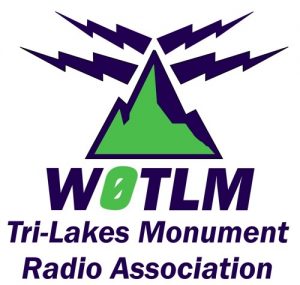 Sat Feb 24 and Sat Mar 3 (8 AM to 5 PM) 2018
Sat Feb 24 and Sat Mar 3 (8 AM to 5 PM) 2018
Black Forest Fire Station
11445 Teachout Road
Colorado Springs, CO 80908
The General License provides access to regional and worldwide communications on the HF bands, greatly expanding your ham radio fun!
• Upgrade from Technician to General Class radio privileges
• Pass your FCC General Class amateur license exam Mar 10*
• Live equipment demonstrations and activities
• Learn to operate on the HF bands, 10 Meters to 160 Meters
• Gain a deeper understanding of radio electronics and theory
• Take the next step with antennas, amplifiers, digital modes
Registration fee: $30 ($20 for under 18 years of age)
Students must have the required study guide: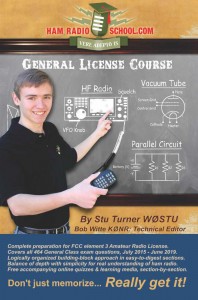
HamRadioSchool.com General License Course
Second Edition, effective 2015 – 2019, $22.95
* Free FCC exam session on Mar 10 at Black Forest Fire Station 9:30 am.
To register for the class, email: Bob KØNR [email protected]
Sponsored by the Tri-Lakes Monument Radio Association
The post General License Class: Black Forest, CO Feb 24/Mar 3 appeared first on The KØNR Radio Site.
 Where are Those New Hams Coming From?
Where are Those New Hams Coming From?
The Tri-Lakes Monument Radio Association just completed another successful Technician license class resulting in 21 new Technicians plus one person that passed both the Technician and General exams. We survey the class a week or two later to get their feedback and capture some demographic information. In recent years, our Technician class has consistently filled to capacity, causing us to ask the question “Where are those new hams coming from?”
The key relevant question on the survey is:
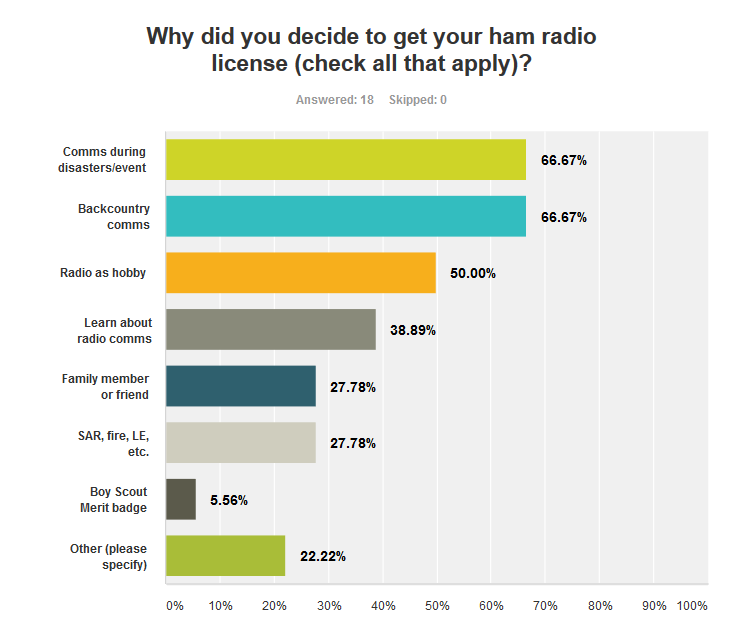 I’ve abbreviated the response choices so they read better on the graph. For example, “Comms during disasters/event” actually says “For communications during disasters or other major events” on the survey. These 18 responses represent over half of the students so they are representative of the class. However, it is a small sample size overall, representing just one class at one time at one location in the US. I will add that the surveys from our other classes are similar.
I’ve abbreviated the response choices so they read better on the graph. For example, “Comms during disasters/event” actually says “For communications during disasters or other major events” on the survey. These 18 responses represent over half of the students so they are representative of the class. However, it is a small sample size overall, representing just one class at one time at one location in the US. I will add that the surveys from our other classes are similar.
The two highest responses, both with 67%, are Comms During Disasters/Event and Backcountry Comms. It was no surprise that communications during a disaster would be a prime motivation for getting a ham radio license. Per FCC Part 97, this is one of the stated purposes of the Amateur Radio Service. Here in Colorado, many people have had the recent experience of wildfires disrupting communications causing them to look for alternatives. In general, the prepper movement is causing people to think in terms of disaster preparedness. Communications in the backcountry includes hikers, climbers, fishermen, dirt bike riders, four-wheel drive enthusiasts and anyone who spends time in the mountains. There are many locations in Colorado that don’t have cellphone coverage, so people are looking for alternative communications. This is likely a regional phenomenon…I don’t think you’d see “backcountry communications” on the short list of amateur radio interest is downtown Chicago.
Radio as a hobby gathers 50% of the responses, followed by 39% interested in learning about radio communications. This says that about half of the students are pursuing ham radio as a hobby. I wonder if this is different that the historical average from 20 years ago? I suspect it used to be higher but I don’t have any data to support that. This would likely be a leading indicator for how many of these new licensees get deeply involved in ham radio activities. I have seen students start out with a narrow focus on emergency preparedness but then discover there’s a lot more to ham radio that they choose to pursue.
What do you think about these results?
73, Bob K0NR
The post Where are Those New Hams Coming From? appeared first on The KØNR Radio Site.
 General License Class (Black Forest, CO)
General License Class (Black Forest, CO)
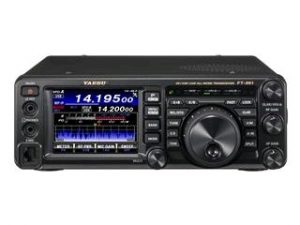 Ham Radio General License
Ham Radio General License
Two-day Class
Black Forest, Colorado
Two class sessions on Sat Sept 24 and Sat Oct 1 (8 AM to 5 PM) FCC Exam session on Oct 8th
Location: Black Forest Fire Station
Intersection of Burgess Rd. & Teachout Rd.
The General License provides access to regional and worldwide communications on the HF bands via ionospheric skip, greatly expanding operational capabilities!
- Upgrade from Technician to General Class radio privileges
- Pass your FCC General Class amateur license exam Oct 8 *
- Live equipment demonstrations and activities
- Learn to operate on the HF bands, 10 Meters to 160 Meters
- Gain a deeper understanding of radio electronics and theory
- Take the next step with antennas, amplifiers, digital modes
Registration fee: $30
(No FCC exam fee required at Oct 8 exam session)
In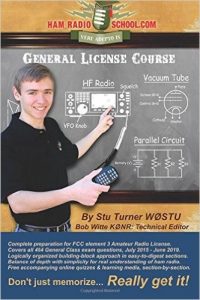 addition, students must have the required study guide:
addition, students must have the required study guide:
HamRadioSchool.com General License Course
Second Edition, effective 2015 – 2019, $22.95
Current FCC Technician License required for registration. Advanced registration is required by Sept 10th or earlier. First-come registration acceptance until class is full.
To register for the class, contact: Bob Witte KØNR
Email: [email protected] or Phone: 719/659-3727
Sponsored by the Tri-Lakes Monument Radio Association.
The post General License Class (Black Forest, CO) appeared first on The KØNR Radio Site.
 Kids are Not the Future of Ham Radio
Kids are Not the Future of Ham Radio
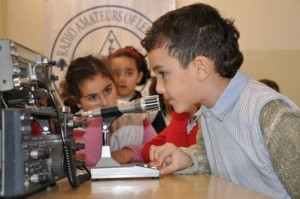 You’ve heard it a million times: our kids are the future. That statement gets applied to almost everything, including amateur radio. How can you argue with an obvious fact like that?
You’ve heard it a million times: our kids are the future. That statement gets applied to almost everything, including amateur radio. How can you argue with an obvious fact like that?
But I am starting to think it is incorrect.
We’ve had really good success on creating new hams of all ages in our Technician License Class (at the Tri-Lakes Monument Radio Association). We’ve been doing this for a while now and I think I am seeing a pattern emerge. We’ve been able to attract middle schoolers to the class and help them get their ham radio license. I’ve talked to many of them on the air. They’ve helped out with public service events. They seem to have fun playing with radios.
Then this thing called high school happens. The high school phase in the US is filled with tons of stuff to do: studying, homework, AP classes, science competitions, sports, dating, movies, driving and after school jobs. Way too much stuff. Ham radio starts to take a backseat to these normal high school activities. Then we don’t see the kids at the radio club meetings or chatting on the local repeater because they are busy doing other things. Have we lost them forever? Not sure.
High school is often followed by college which has its own set of challenges: a totally new environment, away from home, a new set of people, new studies, etc. There might be a ham radio club on campus but maybe not. If a kid is not off to college they are (hopefully) out doing something to establish themselves in this world. Eventually they emerge on the other side, get a job, get themselves established, sometimes with a spouse and maybe a kid or two. By this time they are 25 to 30 years old, depending on the individual.
I recently posted about the demographics of our students in the Tech License Class. The chart below shows the age distribution of our students from our most recent class. Hmmm, clearly most of our students are 30 or older. (Sorry, we have not collected age data with finer resolution.) This particular class is light on the under 18 crowd…sometimes we have a clump of kids in the mix.
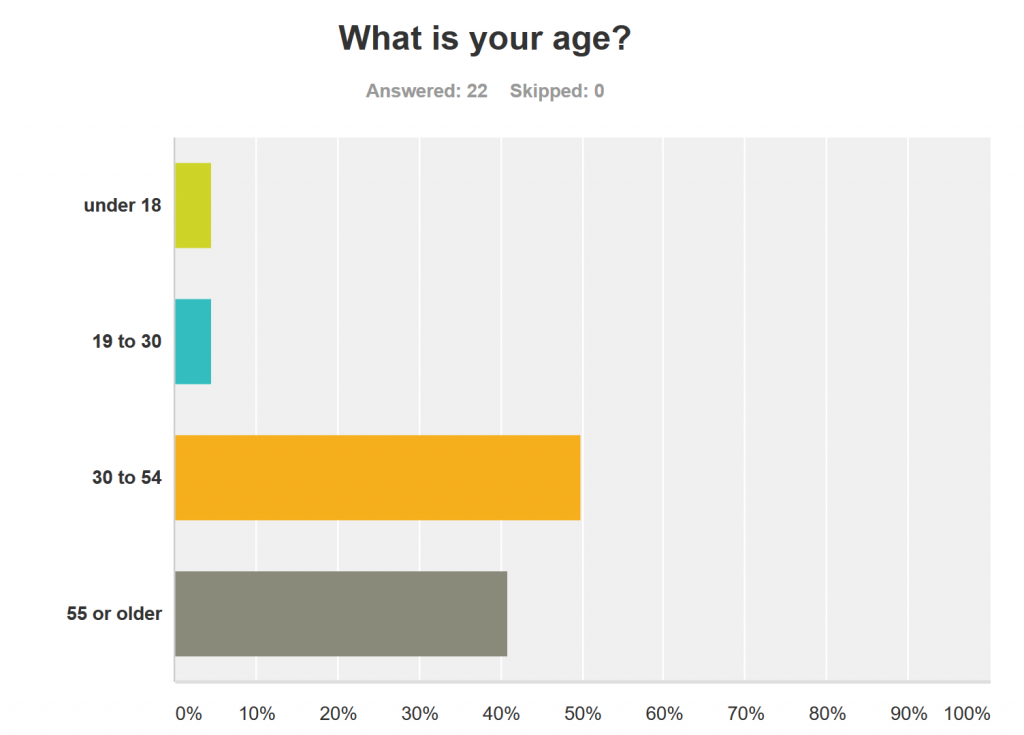 For whatever reason, it seems that most people find themselves in a situation as an adult that causes them to say “I want to get my ham radio license.” When asked why they want to get their ham license, the top response is always emergency/disaster communications, followed by backcountry communications, pursuing electronics as a hobby and learning about radio communications. I suspect that starting to be established in a community and having some disposable income also play a role.
For whatever reason, it seems that most people find themselves in a situation as an adult that causes them to say “I want to get my ham radio license.” When asked why they want to get their ham license, the top response is always emergency/disaster communications, followed by backcountry communications, pursuing electronics as a hobby and learning about radio communications. I suspect that starting to be established in a community and having some disposable income also play a role.
My hypothesis is that the most effective way of growing a vibrant ham radio community is to target adults ages 25 to 40.
This age range is more equipped and ready to be ham radio operators and are still young enough that they will be around for a while. Of course, we still want to work with all age groups, including kids and retirees. We’ve all seen very young hams get the bug for ham radio early and carry it throughout their life. And we also see plenty of older folks get interested in the hobby as they approach or enter retirement. We don’t want to miss out on either of those groups.
So that’s my read on the situation. I’ve got some data to support my theory but I can’t really prove it. What do you think? What are you seeing in your ham radio community?
73, Bob KØNR
The post Kids are Not the Future of Ham Radio appeared first on The KØNR Radio Site.
 Where Are The New Technicians Coming From?
Where Are The New Technicians Coming From?
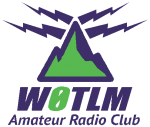 We just wrapped up our Technician license class sponsored by the Tri-Lakes Monument Radio Association. Thirty people took the Technician exam with 27 passing (90%). Four people went on to pass the General exam.
We just wrapped up our Technician license class sponsored by the Tri-Lakes Monument Radio Association. Thirty people took the Technician exam with 27 passing (90%). Four people went on to pass the General exam.
We offer the class twice per year and it always fills to capacity. Invariably, we wonder “where are these new hams coming from?” and instituted a survey to try to find out. Here’s the data from the most recent class, which is typical of previous classes.
Demographics
The class was almost all male (90%) and mostly above the age of 30. From time to time, we’ve had groups of Boy Scouts come through the class which shifts the age profile a bit lower.
 We ask about how they found out about the class. These responses overlap so we have them check all that apply. Most of these people find out about the class through normal “ham radio channels”, including the ARRL web site. A few people in the “other” category mentioned notices published in local weekly newspapers.
We ask about how they found out about the class. These responses overlap so we have them check all that apply. Most of these people find out about the class through normal “ham radio channels”, including the ARRL web site. A few people in the “other” category mentioned notices published in local weekly newspapers.
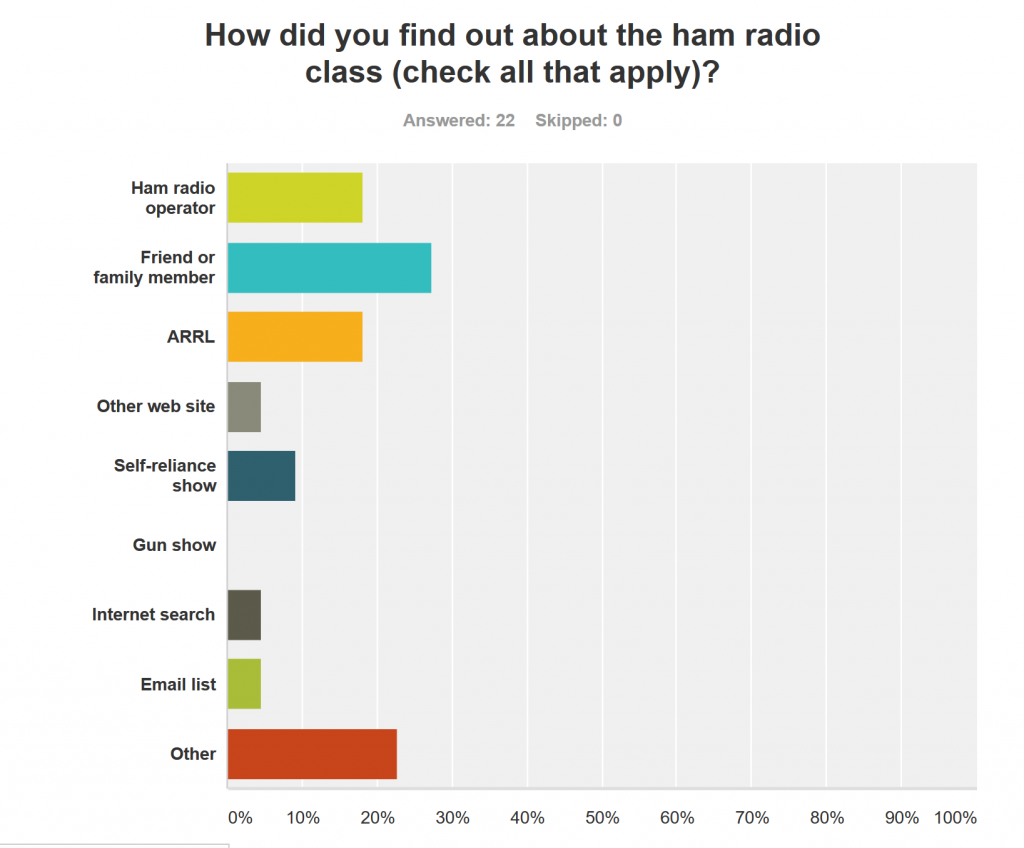 Here’s where it gets interesting. Why do they want to get their amateur radio license? Disaster and emergency communications continues to be the most common answer at almost 90%. This is followed by the closely-related Backcountry/Remote Communications (about 80%). About 60% of the respondents selected radio and electronics as a hobby. More than half said they want to learn about radio communications.
Here’s where it gets interesting. Why do they want to get their amateur radio license? Disaster and emergency communications continues to be the most common answer at almost 90%. This is followed by the closely-related Backcountry/Remote Communications (about 80%). About 60% of the respondents selected radio and electronics as a hobby. More than half said they want to learn about radio communications.
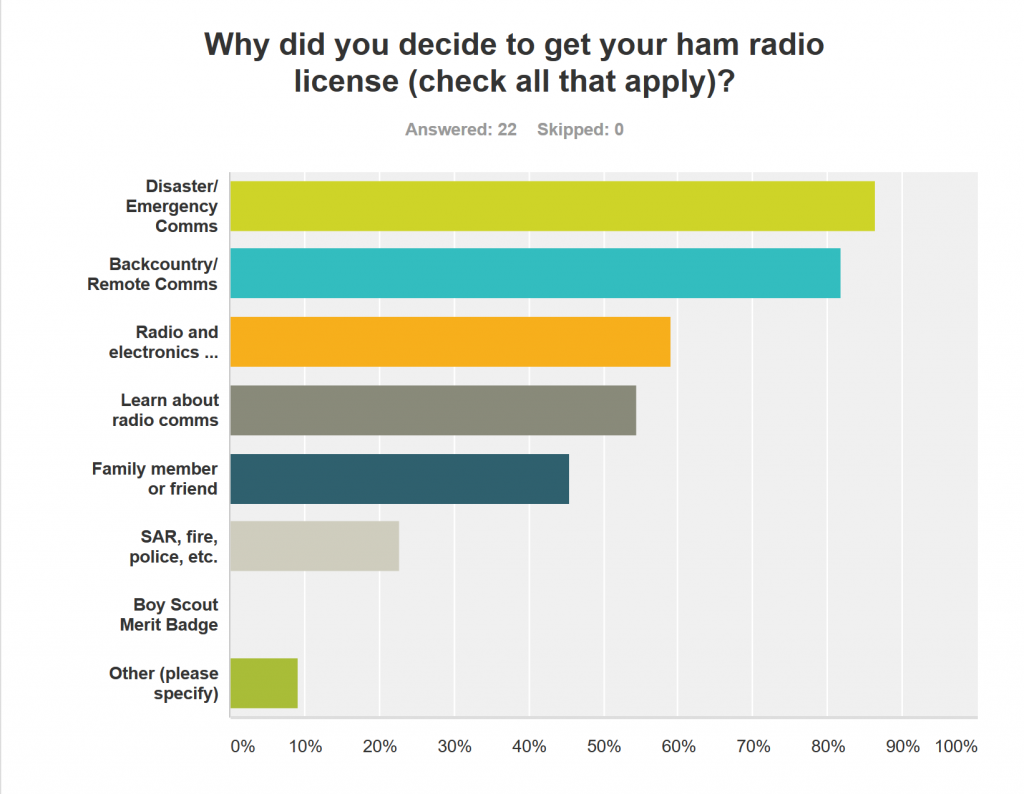 Not to be overlooked is the influence of family and friends at 45%. We often see family members of current radio hams that were
Not to be overlooked is the influence of family and friends at 45%. We often see family members of current radio hams that were badgered encouraged to get their radio license. We do see more than 20% that see a ham radio benefit to their involvement with fire, search and rescue, law enforcement and similar agencies.
Summary
Emergency and disaster preparedness rank high in the reasons why these people are interested in amateur radio. This may be fueled locally due to the recent devastating wildfires in Colorado. Many people experienced first hand what happens to the mobile phone and landline systems when disaster strikes. When All Else Fails. The other major motivation is the traditional hobby aspect of amateur radio. People like to learn about technology and have fun experimenting with it. Lately, this has taken the form of the Maker Movement.
73, Bob K0NR
The post Where Are The New Technicians Coming From? appeared first on The KØNR Radio Site.















